Propagating Aloe Vera: How To Remove Aloe Vera Pups
Besides being a plant with medicinal properties, Aloe vera is a succulent that keeps giving. If your plant is healthy and happy, you’ll see new growth appearing at the base of the mother plant. I’ll show you the easiest method of propagating Aloe vera, in my opinion. This is all about removing those pups so you can have more plants and share the love.
My Aloes have always produced many pups, and I’ve given many away to friends and even my friendly UPS guy. Aloe vera is a clumping plant; those babies grow and spread as they mature.
You don’t have to remove them, but if you have them growing in a pot, they’ll eventually crowd each other out, and you’ll need to divide or move to a larger pot. I have a large pot of Aloe growing here in my Tucson garden that needs dividing and a new pot. You can see it in the photo directly below.
Botanical Name: Aloe barbadensis. Common Name: Aloe Vera, Aloe, Medicinal Aloe, Medicine Plant.
Propagating Aloe Vera
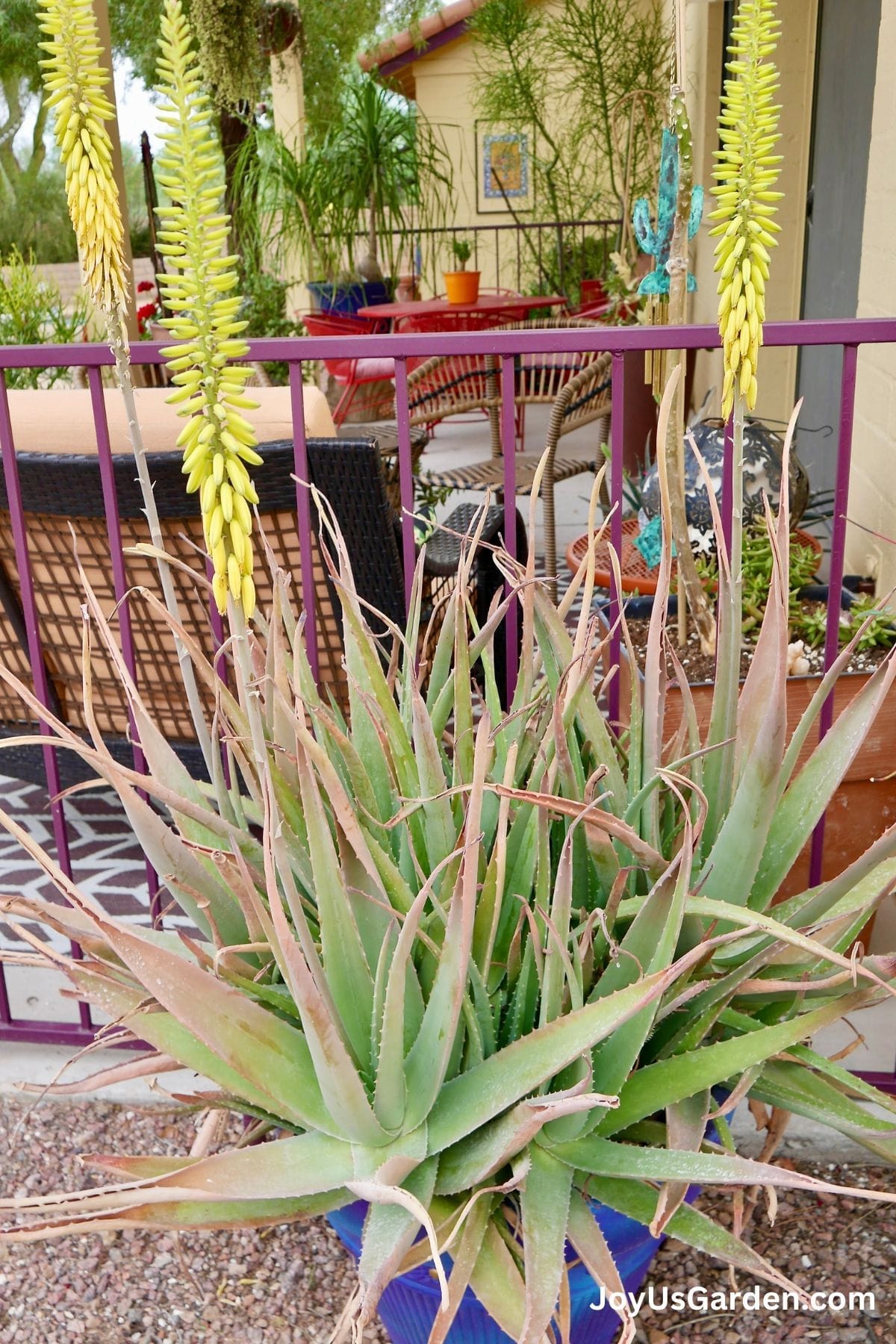
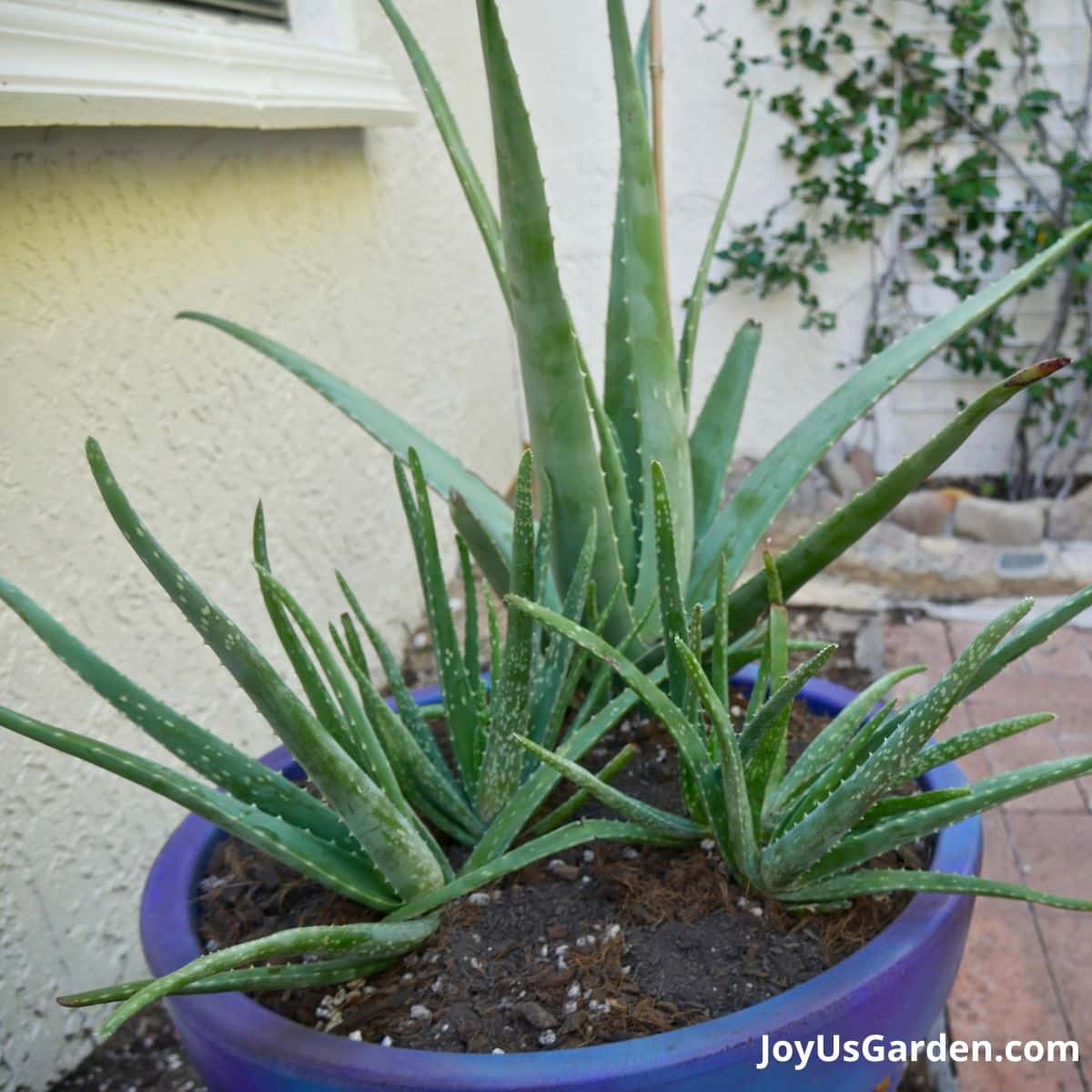
Aloe vera are popular indoor plants and will do great if growing in enough light and you don’t give them too much water. It’s easy to get new aloe vera plants from division. Removing the pups is a way of dividing the plant.
What Are Aloe Vera Pups
The baby plants grow off the larger, more established parent plant are commonly called pups. You may also see them referred to as offsets, plantlets, and babies. Once your pups grow and get established, they’ll produce new aloe plants, also.
A mature plant will produce pups. If yours isn’t, it’s not old enough or growing in the right conditions.
When To Propagate Aloe Vera
You can remove an Aloe vera pup at any time of year, but the best time is spring or summer. I’ve also propagated in early fall and avoided doing it during winter.
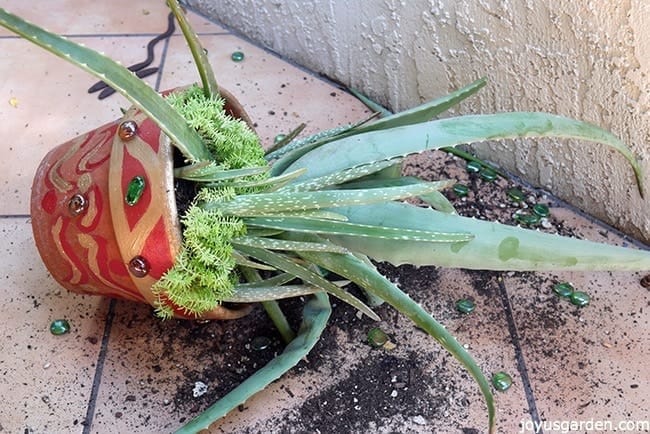
How Big Do Aloe Pups Need To Be?
I like to wait until the Aloe vera pups are good-sized, at least 4-6″ tall. This is because the roots are much better formed and on their way. You’ll see in the last photo that I removed all of the pups from the parent plant because I wanted to show you how less formed the roots are on the smaller ones.
Those tiny pups with 1 or 2 roots on them will grow too, but if you’re a beginning gardener, why not just hold tight until they’re bigger and the root system is better formed? It’s not that long a wait, and you can be certain the babies will survive.
You can leave your Aloe in the pot (with the mother plant) to remove the pups, especially if you only remove one or two. I find it easiest to take the plant out of the pot. That way, you can also freshen up the soil for the mother plant simultaneously. I show you both ways of removing the pups in the video below.
Do you have questions about this plant? We answer questions about Growing Aloe Vera here.
Aloe Pup Without Roots
Aloe vera pups don’t need to have an extensive root system, but there needs to be a few nodes showing. Nodes are what the roots emerge out of. If no nodes or roots are showing on the stems or at the base, there’s no guarantee the pups will root.
Aloe Vera Propagation Video Guide
Propagating Aloe Vera Step By Step
Loosen the plants from the sides of the pot with a knife.
Scrape the soil away from the base of the pups with a clean knife, small trowel, or spoon.
Pry the pups away with a knife, small trowel, or spoon. If the root ball isn’t too tight and the pups are loose enough, you can do it with your hands and no tool. Whatever you use, you’ll need to hold firmly onto the mother while doing this.
Here are five reasons you may be having problems Growing Aloe Vera Indoors.
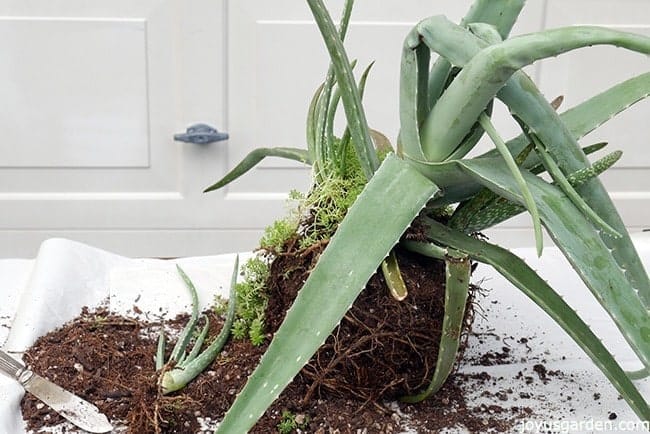
They’ve always pulled away easily for me, but if not, you may have to use the knife to pry or cut them if they’re stubborn.
You might want to check out this Aloe Vera 101. It contains a round-up of our Aloe Vera care guides covering aspects of this useful plant.
How To Plant Your Aloe Vera Pups
Now that your new plants are separated and ready to go, it’s time to plant them in a new pot or two.
A small pot for small pups is fine. You want to make sure there are drainage holes on the bottom of the pot. A Succulent And Cactus Mix is best because it yields good drainage and is loose, so the roots can easily grow.
I’ve done a post and video dedicated to Planting Aloe Vera Pups. You can see how to do it, along with how to care for them.
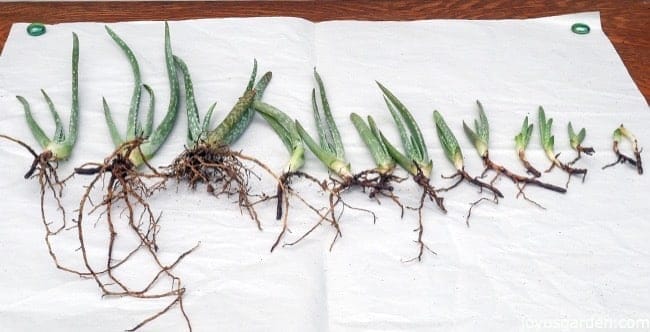
Aloe Vera Propagation FAQs
Aloe propagation is easiest via the division of the aloe offsets or pups that form at the base of the plant. A young plant won’t produce the pups; a mature aloe plant will.
Remove the pups following the step-by-step above and plant the pups using This Guide. Keep your newly planted pups in bright, indirect light while they’re rooting in. You’ll find more care instructions in the planting post.
Yes, you can grow it from stem cuttings. The stem must have visible roots or root nodes for propagation to be successful. Those nodes are where the roots emerge.
Aloe vera is a succulent plant. I always propagate succulents in succulent and cactus mix, which is light and well-aerated. This allows the roots to develop easily.
I’ve never propagated it in water. This is a plant I’ve been growing for over 25 years and have had a success rate of 100% when propagating Aloe vera in soil mix. Why change it up?!
There are various opinions about this, some claiming to have success and others saying don’t do it. Aloe has thick stems and leaves that are full of water. I tried to root a stem cutting (not a single leaf cutting) in water once, and it rotted out.
I learned to propagate Aloe vera in soil mix many years ago, so that’s the successful method I stick with. Propagating in soil mix is what I recommend, but try the water method if you’re curious!
The fleshy leaves store water and are full of Aloe vera gel. For this reason, I’ve never tried leaf cuttings in water or soil because of rot. And besides, a healthy Aloe vera plant will produce many pups, so there’s no need to propagate from a single leaf.
Interested in more on Aloe vera leaves? Check out this guide on How To Use & Store Aloe Vera Leaves.
Note: This post was originally published on 9/20/2017. It was updated with more information on 4/3/2023.
If you have one Aloe vera plant, having new plants isn’t a bad thing at all. If you don’t want anymore, I’m sure a friend will. This plant has healing properties, so spread the goodness!
Happy gardening,

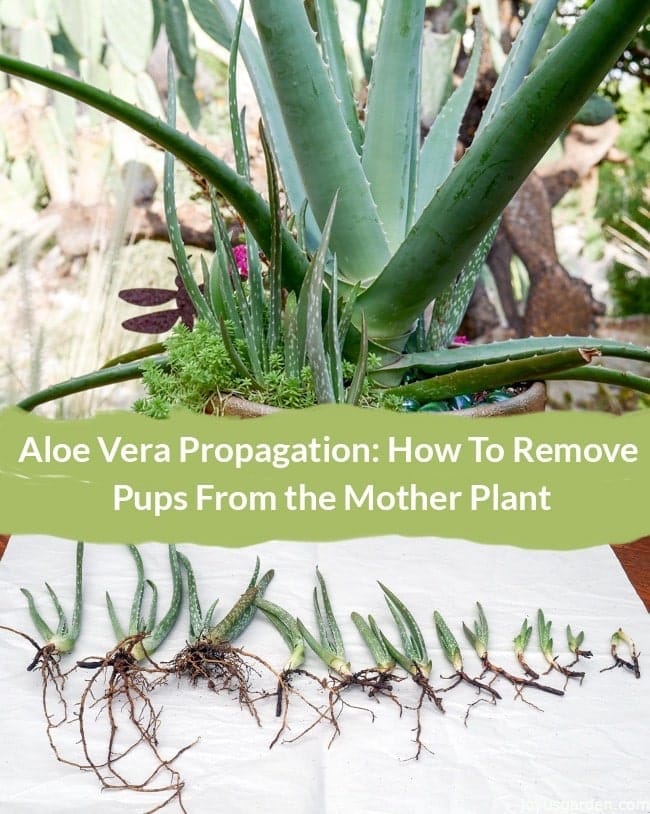
- About the Author
- Latest Posts
Nell, the founder of Joy Us garden, was born into a gardening family and grew up in Connecticut’s countryside. After living in Boston, New York, San Francisco, & Santa Barbara, she now calls the Arizona desert home. She studied horticulture & garden design, working in the field all her life. Nell is a gardener, designer, blogger, Youtube creator, & author. She’s been gardening for a very long time & wants to share what she’s learned with you.


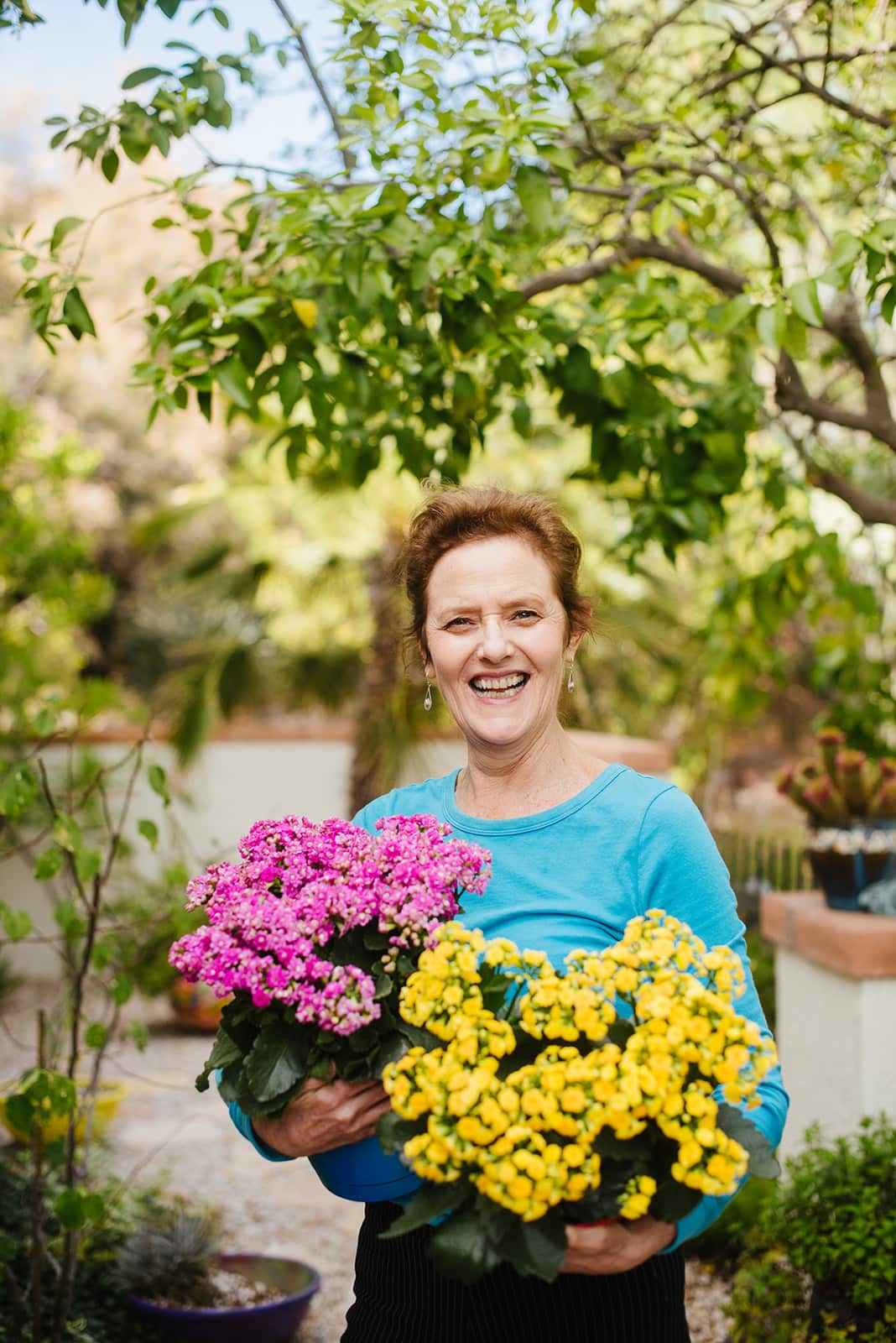
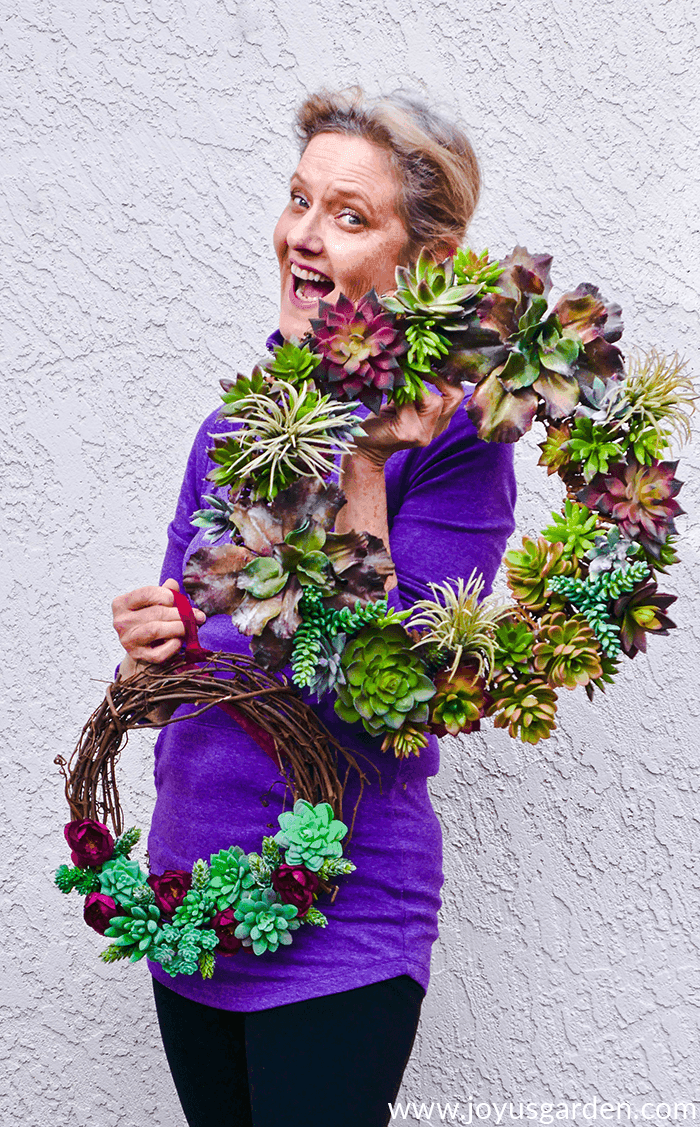
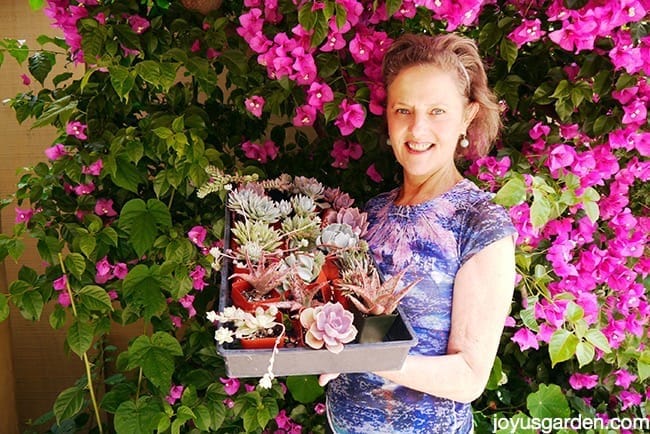
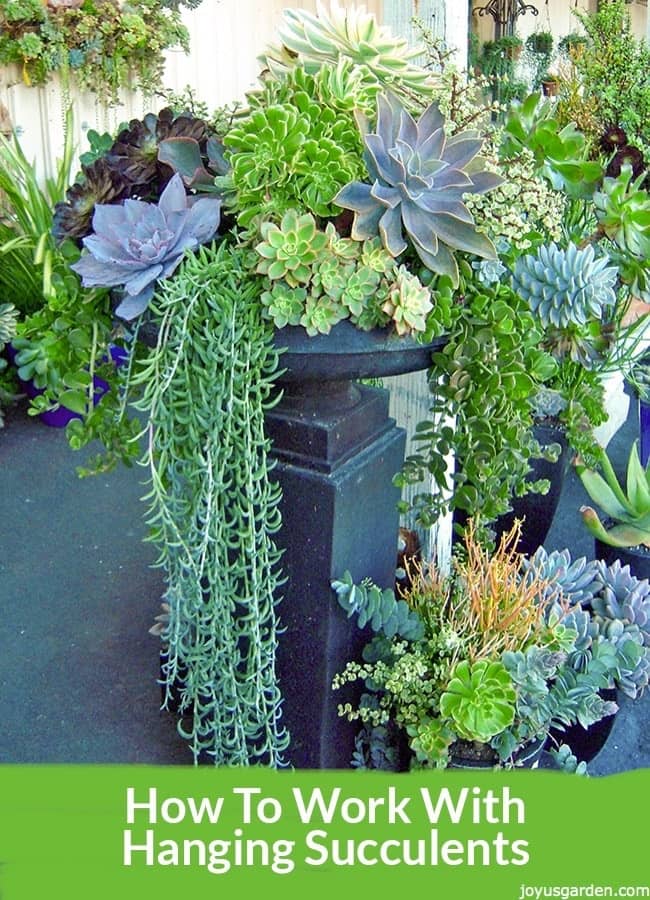
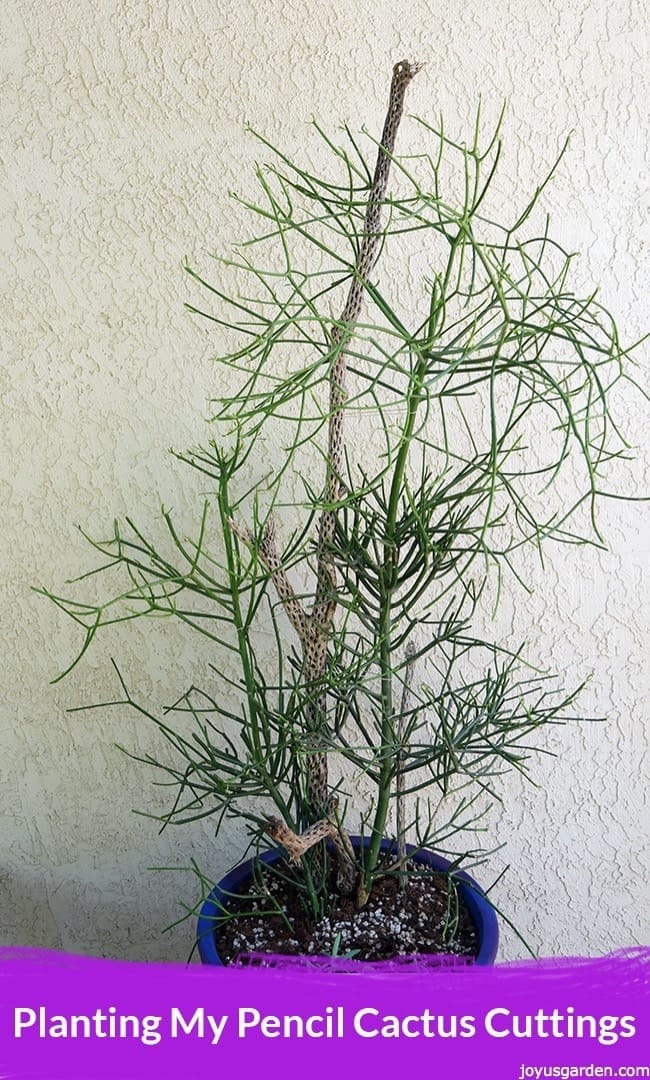
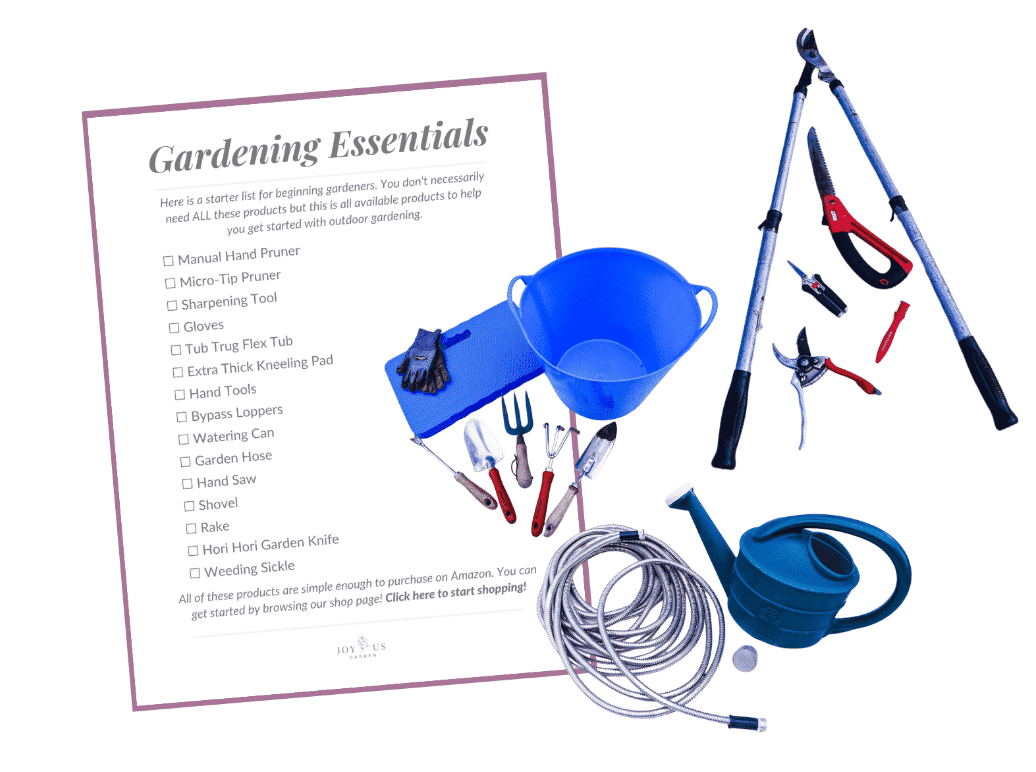
My aloe has a tiny bit of white mold on the dirt is there a home remedy?
Hi Leon – Keep the it drier – the mold is usually due to the soil staying wet. If it’s just a tiny bit, you can easier scrape it off. Nell
I bought an aloe plant over two years ago and it has grown beautifully. But it has never had any “pups”. Is there an age it starts or anything I can do to promote them?
It depends Stephanie. My pups produced a couple of pups the following year here in Tucson but the weather is very warm. Sometimes it takes an Aloe vera 5 years to mature & produce pups. Nell
I have many Aloe plants, and one of my mature plants is growing a pup from the stalk of where the flower was…is that normal because it’s the first time I have seen it happen. Also why does this happen? Thank you so much!
Hi – I’ve seen that happen on other Aloes (there are many species of Aloes) but not on an Aloe Vera. I believe it’s just the nature of the plant. Nell
Hi, I just pulled a soap aloe plant out of the pot because I noticed a pretty tall baby creeping up the side. It really needed some new soil also as I’ve basically just left it sit for well over five years. It flowers pretty frequently so I guess it’s been happy. When I pulled it out there were about 10 babies around the base of the plant, all smooshed into the pot. They have long thick roots, but the leaves are curled and pale, but still thick and firm. Do you know if they will eventually straighten and turn green? They are all now planted in their own pots and the mommy has new soil finally. Just wondering if it’s worth keeping the babies.
Hi Samantha – The older growth may not straighten out but the new growth will.Nell